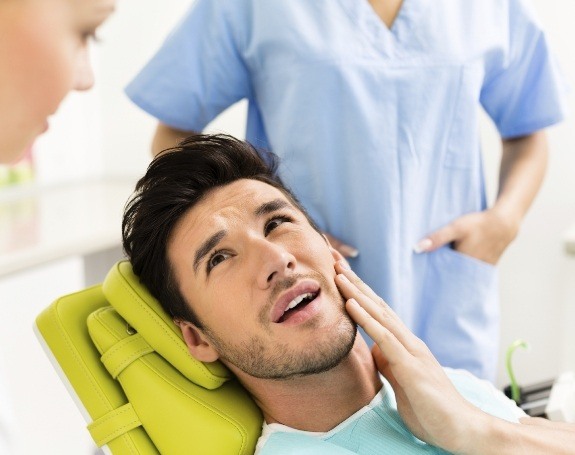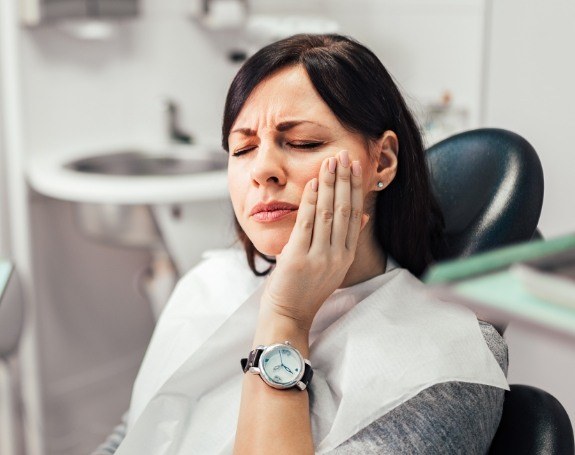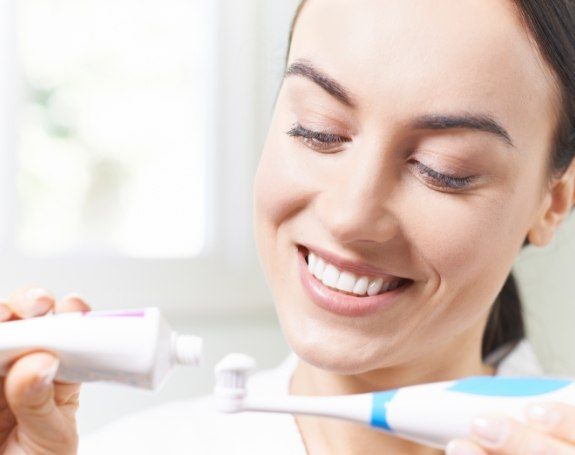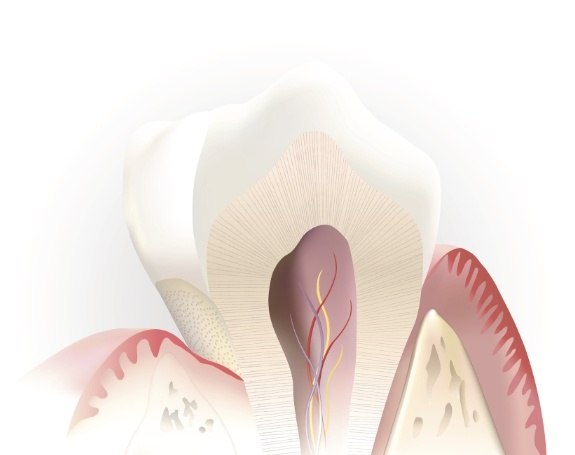Emergency Dentist — Chardon, OH
Stopping Dental Pain Fast

Call us right now if you or a loved one is currently experiencing a dental emergency so that we can give you first-aid advice and set up an appointment right away! You never know when a dental emergency is going to happen, but once it does, you have a very short amount of time to take control of the situation before it grows worse. We recommend that you keep our phone number close at hand at all times so that you can call us immediately for emergency dentistry in Chardon, OH if you break a tooth or if a member of your family starts experiencing severe, persistent dental pain.
Why Choose Chardon Smile Center for Emergency Dental Care?
- Same-Day Emergency Appointments
- State-of-the-Art Technology
- Highly Experienced Dental Team
What to Do in a Dental Emergency

Dental emergencies can oftentimes be stressful, which is why it’s important to know how to handle them before they strike. Should you or a loved one experience a dental emergency, follow these steps:
- Call us right away: As soon as you can, give our office a call. We do everything we can to see emergency patients on the same day that they call us. One of our experienced team members will walk you through immediate first aid over the phone as we schedule your appointment.
- Visit us for an emergency exam: Once you arrive for your appointment, one of our doctors will see you right away. We’ll relieve any immediate pain you may be in, then get to work investigating your emergency.
- Review findings and make a treatment plan: The doctor will review their findings with you, explaining the source and extent of your situation. From there, they will go over which treatments they recommend and work with you to put together a custom treatment plan.
- Get the care you need: As soon as a treatment plan has been made, our team will get to work right away! Whether you need a simple filling or antibiotics, or something more significant like a dental crown or root canal, we’ll work quickly so you can get back to enjoying your happy, healthy smile!
The Most Common Dental Emergencies
There are many different oral health issues, and sometimes it can be unclear which are truly emergencies. Call us immediately if you have any concerns and are uncertain about what you should do next.
Emergencies that involve a broken jawbone or unstoppable bleeding should first be handled by the nearest emergency room. We can take care of your dental concerns after you’ve been treated. Below are some tips for dealing with some of the more common dental emergencies.
Understanding the Cost of Dental Emergencies

Every dental emergency is different. Some require dental crowns while others call for tooth extractions and even root canal therapy. Our dental experts will be on hand to assess the situation and give recommendations for the appropriate treatments. An estimate will only be provided after we’ve performed an emergency examination. We’ll develop a treatment plan based on what’s necessary for your oral health, and we’ll explain any and all associated costs to you as thoroughly as possible.
How to Prevent Dental Emergencies

You can’t prevent all dental injuries, but it is completely possible to minimize the possible risks to your smile. First, you need to take control of your oral hygiene, which means brushing and flossing regularly while making biannual trips to the dentist. Then, you need to reexamine your diet and make sure that you’re staying away from the starch and sugar that can make your mouth more susceptible to decay and disease. Finally, you need to take steps to protect yourself from accidents, such as getting an athletic mouthguard and breaking bad habits like chewing ice.
Root Canal Treatment

Root canal treatment is often depicted as a painful procedure, but this is extremely misleading. Not only can we use root canal therapy to stop pain, but it also helps us avoid having to perform an extraction. The procedure involves the innermost part of the tooth known as the dental pulp, which causes toothaches when it becomes infected. Taking out the pulp will eliminate the pain and prevent the infection from spreading beyond the tooth. Your mouth will be numbed during the procedure.
Tooth Extractions

Every effort will be made to preserve your natural teeth whenever possible. We do not extract teeth unless we determine that it is in the best interest for your oral health. Some situations where an extraction might be called for include:
- Any time that a tooth has become damaged or decayed beyond repair
- Advanced gum disease that has destroyed the bone supporting a tooth
- Baby teeth that have failed to fall out naturally or are stopping adult teeth from erupting
- Preparation for dentures or certain orthodontic treatments
Preventive Dentistry Restorative Dentistry Dental Implants Cosmetic Dentistry Periodontal Therapy TMJ/TMD Therapy View Our Services
